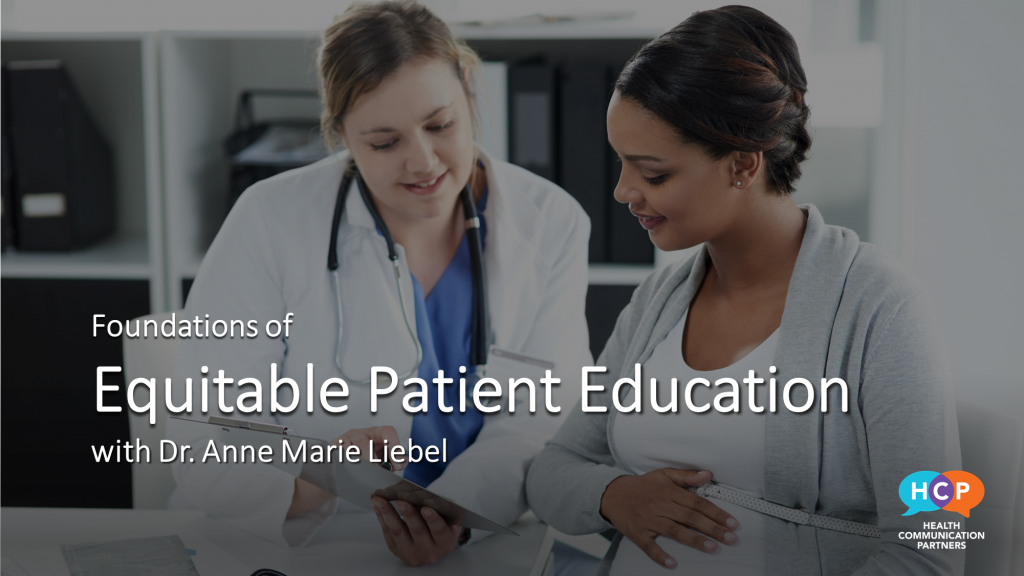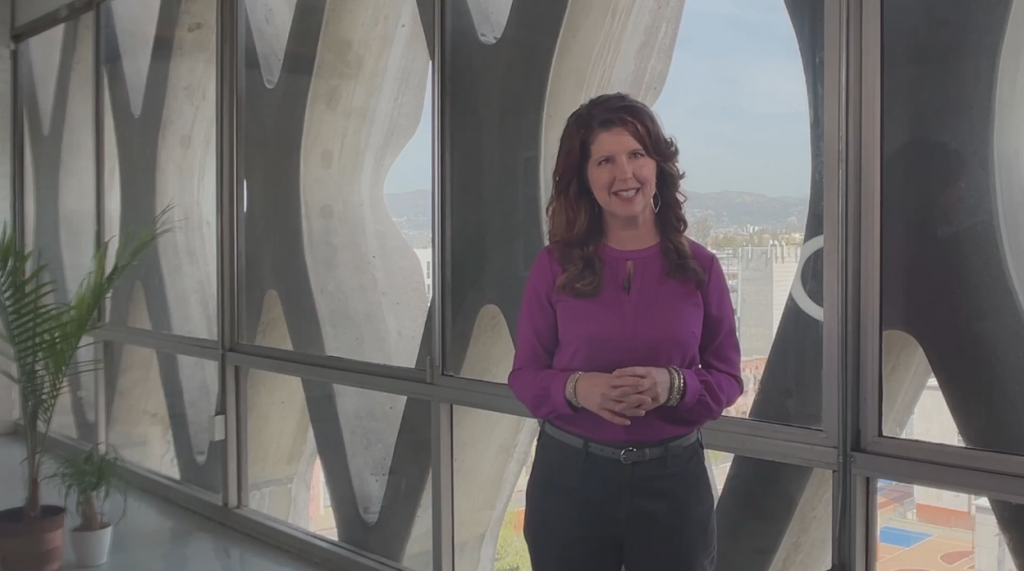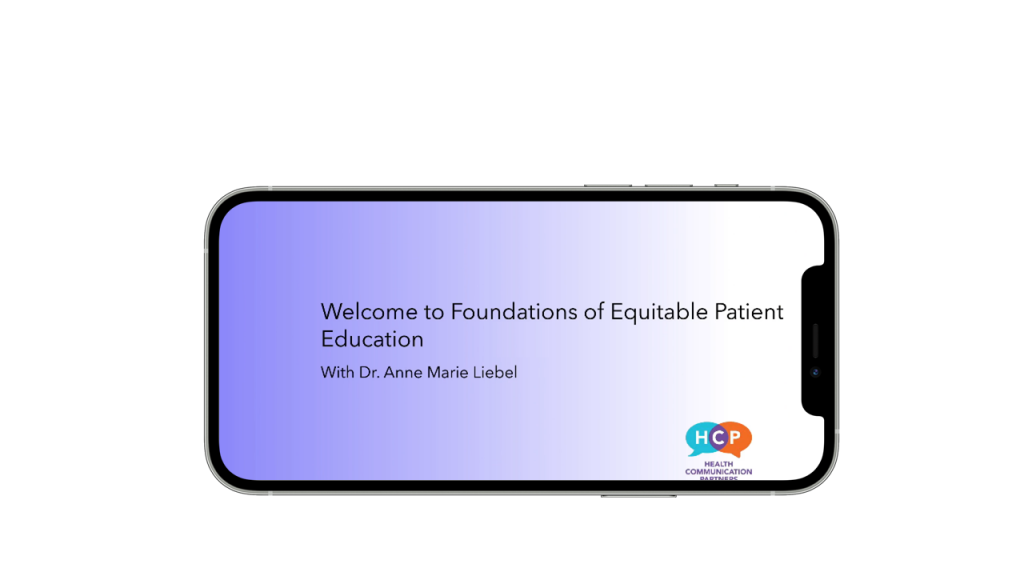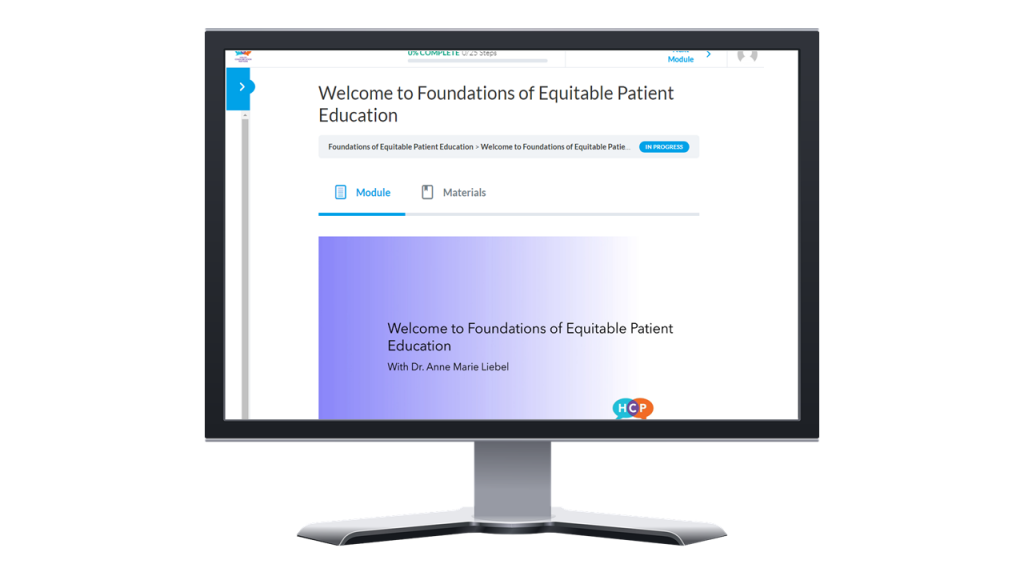
Effective patient education improves health outcomes. Six decades of research proves patient education’s effectiveness on patients’ physical, psychological and physiological outcomes [1,2,3].
Patient education is also cost-effective [4]. For every dollar invested in patient education, 3-4 dollars are saved [5].
Patient education also has the potential to impact health equity. As an essential component of person-centered care, patient education can enable shared decision-making and foster trust and respect [6]. Patient educators know that all patients deserve care responsive to their needs, as well as to their preferred language, cultural health beliefs, and traditions [7].
Advancing health equity involves educating all patients effectively. This includes identifying and addressing known barriers to educating equitably across different social groups.
Medical staff, hospital staff, and community health workers deserve professional development that helps them be more equitable educators–and therefore, more effective educators.
New Course: Equitable Patient Education
This new, exclusive course offers tools and a framework to understand patient education from an equity perspective, followed by concrete ways to apply what has been learned.
With a blend of video-based and live learning, this course supports all health professionals who want to improve how they educate
“This is so needed! There are tons of tools and great information out there, but it takes a special skillset to translate that knowledge into practice.”
- In-depth look at 6 common educational scenarios and how they can harbor obstacles to equity
- Research-based framework and tools to help you identify and manage obstacles to equity in patient education
- Activities and resources in each module to turn awareness into action in your context
“Your perspective is aligned with much of our other trainings–motivational interviewing, cultural humility, and trauma informed care–with a slightly different angle that is provocative and interesting.”
- Helpful stories of failure and success from professionals across medicine, nursing and public health
- Learn to modify current educational practices to make the most of your educational time
- Reflective practice to improve how you educate patients from any social group
Courses + Action
This course features world-class instructional design.
Using the flipped classroom model, Dr. Liebel combines video-based and live learning to increase follow-through and application of what has been learned.
Participants watch approximately one hour of self-paced videos. There is a live, post-course group meeting when all participants have finished the course to allow for discussion, questions, and follow-through.
[1]Simonsmeier, B. A., Flaig, M., Simacek, T., & Schneider, M. (2022). What sixty years of research says about the effectiveness of patient education on health: a second order meta-analysis. Health psychology review, 16(3), 450–474. https://doi.org/10.1080/17437199.2021.1967184
[2]Faury, S., Koleck, M., Foucaud, J., M’Bailara, K., & Quintard, B. (2017). Patient education interventions for colorectal cancer patients with stoma: A systematic review. Patient education and counseling, 100(10), 1807–1819. https://doi.org/10.1016/j.pec.2017.05.034
[3]Friedman, A.J., Cosby, R., Boyko, S. et al.(2011). Effective Teaching Strategies and Methods of Delivery for Patient Education: A Systematic Review and Practice Guideline Recommendations. J Canc Educ26, 12–21 https://doi.org/10.1007/s13187-010-0183-x
[4]Stenberg, U., Vågan, A., Flink, M., Lynggaard, V., Fredriksen, K., Westermann, K. F., & Gallefoss, F. (2018). Health economic evaluations of patient education interventions a scoping review of the literature. Patient education and counseling, 101(6), 1006–1035. https://doi.org/10.1016/j.pec.2018.01.006
[5]Bartlett E. E. (1995). Cost-benefit analysis of patient education. Patient education and counseling, 26(1-3), 87–91. https://doi.org/10.1016/0738-3991(95)00723-d
[6] Eijkelboom, M. C. L. C., Kalee, M. M., de Kleijn, R. A. M. R., van Wijngaarden, J. J. J., de Jonge, R. R. R., van der Schaaf, M. F. M., & Frenkel, J. J. (2022). Making knowledge clips with patients: What learning mechanisms are triggered in medical students?. Patient education and counseling, 105(10), 3096–3102. https://doi.org/10.1016/j.pec.2022.06.008
[7]Office of Minority Health. (n.d.). CLAS Standards. Think Cultural Health. https://thinkculturalhealth.hhs.gov/clas/standards



